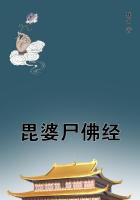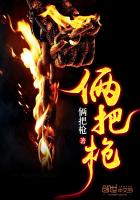The publications in which Quesnay expounded his system were the following:(6)--Two articles,on "Fermiers"and on"Grains,"in the Encyclopédie of Diderot and D'Alembert (1756,1757);a discourse on the law of nature in the Physiocraticof Dupont de Nemours (1768);Maximes génératles de gouvernement économique d'un royaume agricole (1758),and thesimultaneously published Taleau Économique avec son explication,ou Extrait des conomies Royales de Sully (with thecelebrated motto "pauvres paysans,pauvre royaume;pauvre royaume,pauvre roi");Dialogue sur le commerce et lestravaux des artisans ;and other minor pieces.The Tableau Economique ,though on account of its dryness and abstract formit met with little general favour,may be considered the principal manifesto of the school.It was regarded by the followers ofQuesnay as entitled to a place amongst the foremost products of human wisdom,and is named by the elder Mirabeau,in apassage quoted by Adam Smith,(7)as one of the three great inventions which have contributed most to the stability ofpolitical societies,the other two being those of writing and of money.Its object was to exhibit by means of certain formulasthe way in which the products of agriculture,which is the only source of wealth,would in a state of perfect liberty bedistributed among the several classes of the community (namely,the productive classes of the proprietors and cultivators ofland,and the unproductive class composed of manufacturers and merchants),and to represent by other formulas the modesof distribution which take place under systems of Governmental restraint and regulation,with the evil results arising to thewhole society from different degrees of such violations of the natural order.It follows from Quesnay's theoretic views thatthe one thing deserving the solicitude of the practical economist and the statesman is the increase of the net product;and heinfers also what Smith afterwards affirmed on not quite the same ground,that the interest of the landowner is "strictly andinseparably connected with the general interest of the society."(8)M.de Gournay,as we have seen,was regarded as one of the founders of the school,and appears to have exercised someinfluence even upon the formation of Quesnay's own opinions.With the exception of translations of Culpeper and Child,(9)Gournay wrote nothing but memois addressed to ministers,which have not seen the light;but we have a full statement of hisviews in the loge dedicated to his memory by his illustrious friend Turgot.Whilst Quesnay had spent his youth amidst ruralscenes,and had been early familiar with the labours of the field,Gournay had been bred as a merchant,and had passed fromthe counting-house to the once of intendant of commerce.They thus approached the study of political economy fromdifferent sides,and this diversity of their antecedents may in part explain the amount of divergence which existed betweentheir views.Gournay softened the rigour of Quesnay's system,and brought it nearer to the truth,by rejecting what Smithcalls its "capital error"--the doctrine,namely,of the unproductiveness of manufactures and commerce.He directed hisefforts to the assertion and vindication of the principle of industrial liberty,and it was by him that this principle wasformulated in the phrase,since so often heard for good and for evil,"Laissez faire et laissez passer."One of the earliest andmost complete adherents of the physiocratic school,as well as an ardent and unwearied propagator of its doctrines,wasVictor Mirabeau,whose sincere and independent,though somewhat perverse and whimsical,character is familiar to Englishreaders through Carlyle's essay on his more celebrated son.He had expressed some physiocratic views earlier than Quesnay,but owned the latter for his spiritual father,and adopted most of his opinions,the principal difference being that he wasfavourable to the petite as opposed to the grande culture ,which latter was preferred by his chief as giving,not indeed thelargest gross,but the largest net product.Miabeau's principal writings were Ami des Hommes,ou traitésur la population (1756,1760),Théorie de l'impôt (176),Les Éconimiques (1769)and Philosophie rurale,ou Économie générale etpolitique de l'Agriculture (1763).The last of these was the earliest complete exposition of the physiocratic system.Anotherearnest and persevering apostle of the system was Dupont de Nemours (1739-1817),known by his treatises De l'exportationet l'imortation des grains (1764,De l'origine et des progrès d'une science nouvelle (1767),Du commerce de la Compagniedes Indies (1767),and especially by his more comprehensive work Physiocratie,ou Consitution naturelle du gouvernementle plus avantageus ou genre humain (1768).The title of this work gave,as has been already mentioned,a name to theschool.Another formal exposition of the system,to which Adam Smith refers as the "most distinct and best connectedaccount"of it,was produced by Mercier-Lariviére,under the title L'Ordre naturel et essentiel des sociétés politiques (1767),a title which is interesting as embodying the idea of the jus naturae .(10)Both he and Dupont de Nemours professedto study human communities,not only in relation to their economic,but also to their political and general social aspects;but,notwithstanding these larger pretensions,their views were commonly restricted in the main to the economic sphere;at leastmaterial considerations decidedly preponderated in their inquiries,as was *****ly indicated by Larivière when he said,"Property,security,liberty --these comprise the whole social order;the right of property is a tree of which all theinstitutions of society are branches."
同类推荐
热门推荐















